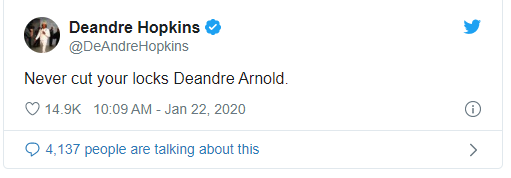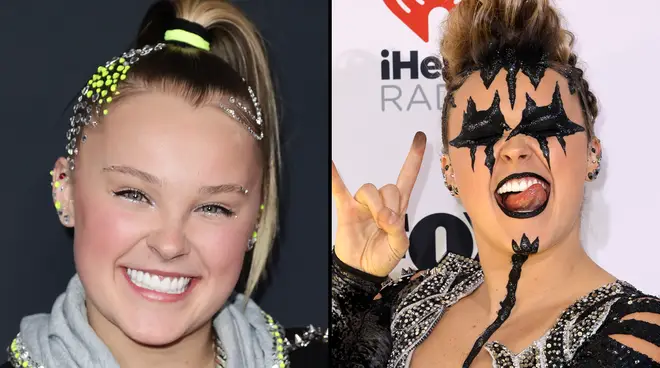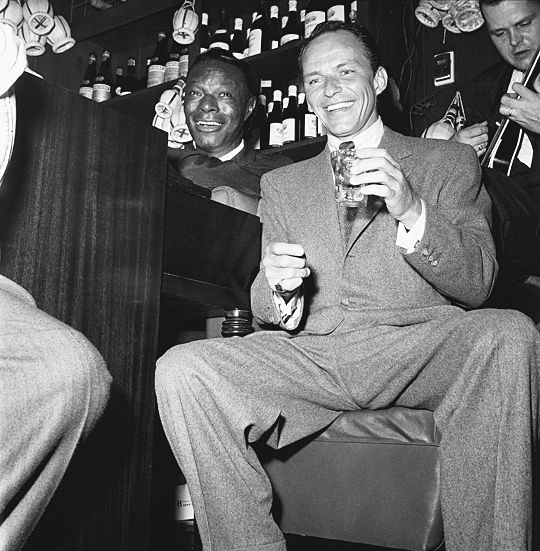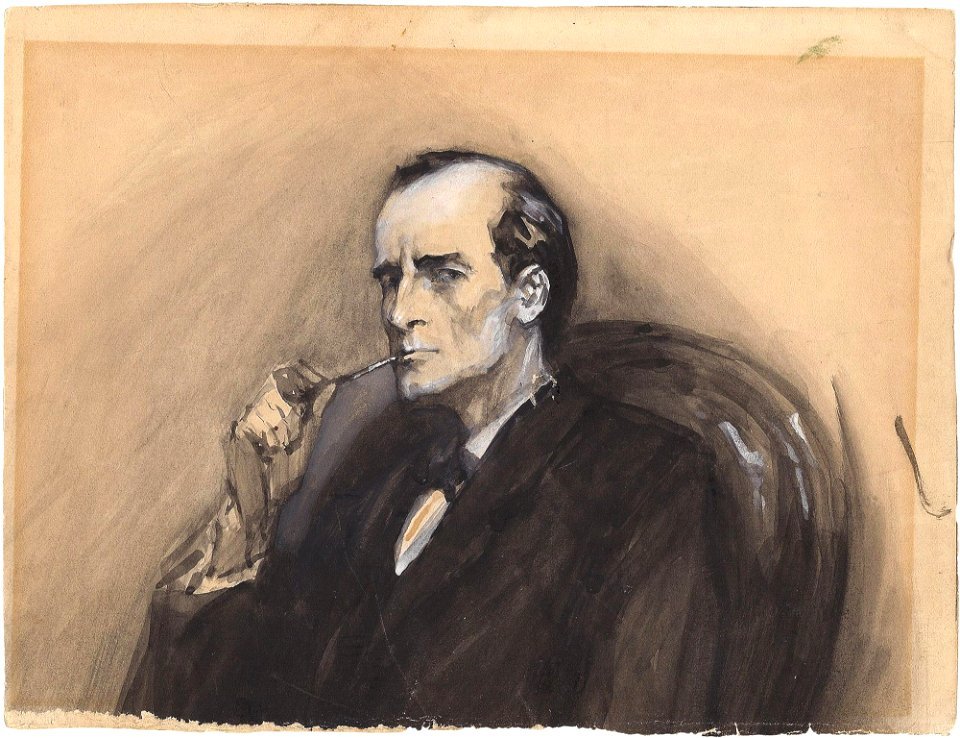Cut Your Dreads or Don’t Graduate

Source: Twitter
February 25, 2020
Imagine that you are told by your school administration that you need to cut your dreadlocks or you will not graduate. Well, this happened to DeAndre Arnold, a student at Barbers Hill High School in Mont Belvieu, Texas. The school has suspended him until he cuts his dreads, and if he doesn’t, he will not walk across the graduation stage.
The reason DeAndre is in this situation in the first place is the dress code policy in his school. The dress code states, “Male students’ hair will not extend, at any time, below the eyebrows, or below the ear lobes. Male students’ hair must not extend below the top of a t-shirt collar or be gathered or worn in a style that would allow the hair to extend below the top of a t-shirt collar, below the eyebrows, or below the ear lobes when let down.”
But DeAndre says that his hairstyle is important in his culture. He went on the Ellen DeGeneres Show to discuss the school policy and said, “My hair really means—like, it’s really important to me because my dad is from Trinidad. And you know it is part of the culture and our heritage. And I really wish the school would kind of be open to other cultures, and just at least let us tell you some things. Don’t just shut us out.”
DeAndre further explained that if he were to go back to school, he could possibly be forced to go to an alternative school, where troublemakers go. Ellen said, “You get good grades, You’ve never been in trouble, ever. This is the first time anything has come up. And now you haven’t been in school for weeks because of this situation.” Later on her show, DeAndre explained, “I’ve worked for this all my life. I’ve strived for this. I deserve this moment to walk across the stage and enter into life. My parents deserve this.”
The school has been adamant in its position and has tried to convince everyone that this is not a race issue. The administrators do not seem to want to change their view on the matter despite the public urging the school to do so. Some celebrities, such as actress Gabrielle Union and football players Matthew A. Cherry, DeAndre Hopkins, and Ronald Talley, spoke out about the school’s unfair policy. Cherry tweeted, “There is no reason why an African American student shouldn’t be able to graduate because of the style of his hair. Looks like the Crown Act needs to be passed in Texas next smh #HairLove @HollyJMitchell @Dove.” Activists such as Ashton P. Woods, founder of Houston’s Black Lives Matter, and Gary Monroe, a United Urban Alumni Association activist, also spoke out. Woods tweeted: “Our demands remain the same, Deandre should be able to attend class, prom and walk in his graduation.”
Cherry, who directed a short film called Hair Love, mentioned DeAndre Arnold and talked about hair discrimination when he accepted an Oscar for his film. The director also brought DeAndre and his mother to the Academy Awards. He wanted to show up for DeAndre and his whole family.
This is not the only time that hair discrimination has occurred. For example, at A Book’s Christian Academy, a private elementary school in Apopka, Florida, a six-year-old boy by the name of Clinton Stanley Jr. was told he was not allowed into the school because his hair did not meet the dress code. Faith Fennidy, an 11-year-old, was told that her braided extensions are a violation of the dress code at Christ the King School in Terrytown, Louisiana.
Stories like these are why some states, such as California, New Jersey, and New York, have passed the CROWN Act. “The CROWN Act ensures protection against discrimination based on hairstyles by extending statutory protection to hair texture and protective styles in the Fair Employment and Housing Act (FEHA) and state Education Codes,” states the CROWN Act homepage. This act will prevent students like DeAndre Arnold from experiencing hair discrimination in the future.





























































































































